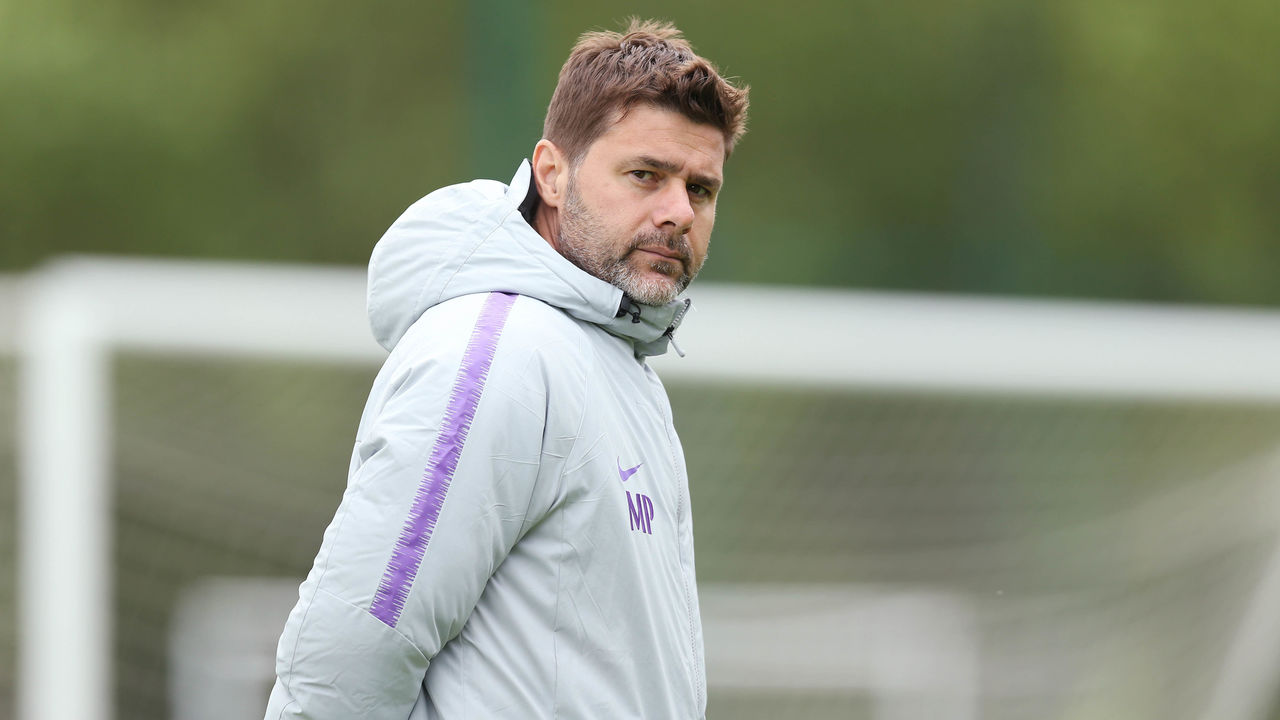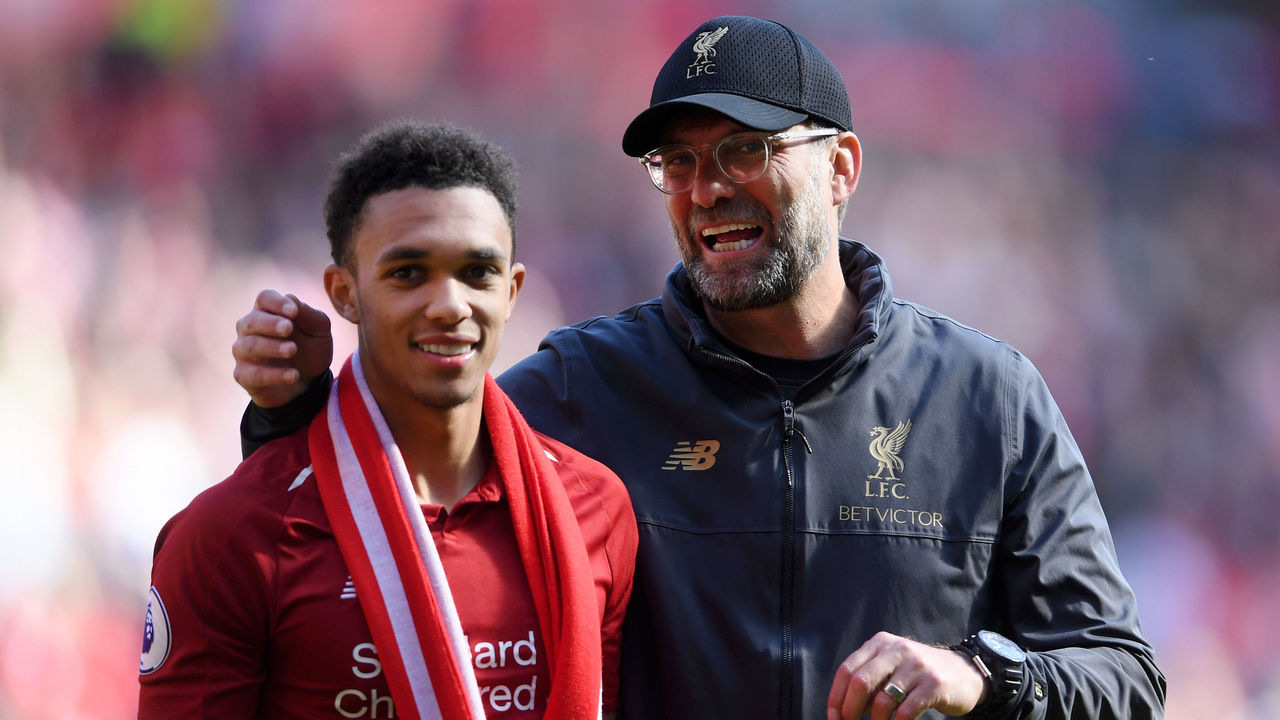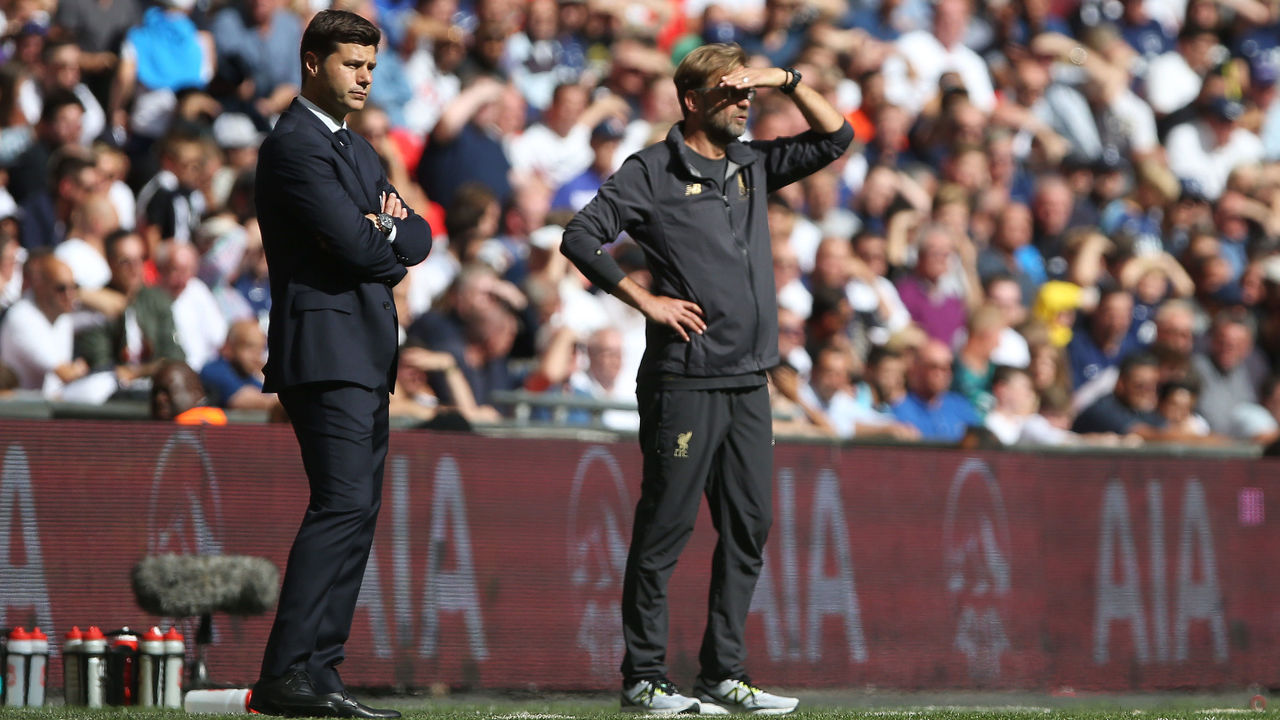Klopp, Pochettino deserve praise after years of tired 'trophyless' banter
Jurgen Klopp and Mauricio Pochettino each have an asterisk beside their name. For all the good work they've done at their clubs, neither has a trophy to show for it.
That will change on Saturday. One will go home as a Champions League winner, the other as a finalist. But together, they're already two of the game's best managers.
Their success is less about what they've won and more about the progress they've made. Klopp and Pochettino regenerated Liverpool and Tottenham, respectively, slowly building teams that could challenge at the highest level after years of mid-table mediocrity. Liverpool's objectives expanded while Tottenham achieved a run of competitiveness not seen since the 1960s.
Klopp and Pochettino did all of this while bringing some of the most progressive football England has ever witnessed. Through a combination of pressing and counterpressing, Liverpool and Tottenham hit opponents like gale-wind forces. Liverpool may play with less intensity than last season, but they continue to win second balls and commit men forward like the best of teams. Tottenham follow a similar blueprint, relying on their attackers to track back and win possession in deeper areas of the pitch.

But critics still take aim at the pair for going trophyless for so long. For many, the destination is more important than the journey itself, but football is more nuanced than that. Manchester United aren't better off having won two trophies during Jose Mourinho's tenure. In fact, they're a mess from top to bottom. Liverpool and Tottenham may have come up short in recent finals, but no one can deny they're ahead of United in more categories than one.
Chosen to spearhead important projects, Klopp and Pochettino were given the necessary time to build something that lasts. It's not always been about signing the best players, but realizing the potential in raw talent. Trent Alexander-Arnold and Andy Robertson needed Klopp's guidance to become dynamic two-way full-backs, just as Moussa Sissoko needed Pochettino to win over doubting fans and develop a sense of comfort in midfield.
Without winning anything at all - he's lost in all three finals as Liverpool manager - Klopp managed to capture the imagination of his surroundings. There's a mural of the affable German with his hand over his heart in Liverpool's city center, showing just how much hope he's restored at a club that was drowning in debt not too long ago. The players feel an attachment to Klopp - "he really is a father figure to us all," Alexander-Arnold said in May 2018 - and so does the red half of Merseyside.

Pochettino has worked within an even tighter framework. Forbidden from signing anyone for more than a year, the 47-year-old coaxed the most out of a thin and often injured squad. He kept Tottenham competitive while club chairman Daniel Levy brokered a move into a new stadium. There were some disappointing defeats in that time, but Spurs always bounced back, countering two or three losses in a row with a run of three or four wins on the spin.
England owes a lot to these two managers. Not only have they mobilized the communities they inhabit and enriched the local economy, they've also sent their pupils to the national team. As many as 11 of their players have represented the Three Lions over the past two years, including several at the 2018 World Cup. Above all, the development of Harry Kane, from a classic poacher into an all-action No. 9, has left England boss Gareth Southgate with one of the best players in his position.
Klopp and Pochettino also share the same fighting spirit. Jose Mourinho - who loathes to praise anyone, ever - conceded that Liverpool's amazing comeback against Barcelona was about the "heart and soul and fantastic empathy (Klopp) has created with that group of players."

Pochettino felt the same connection with his players during their Champions League semifinal encounter with Ajax. Staring down a massive deficit, Spurs roared back to win 3-3 on away goals, prompting a teary-eyed postmatch interview from Pochettino.
"He thinks as a fan," Mourinho said. "He thinks as a kid dreaming with this as a player, and dreaming of these moments, thinking about the family and the people who helped him get there, and I think it is very normal that he is crying, and I think it is a very beautiful way to show the world as managers, or players, it means much more than the ordinary fan, in defeat and in victory too."
Each comeback had little to do with tactics. It was about the personality and attitude the managers instilled in their players. Neither side would be here, with a chance to win the biggest of trophies, if it weren't for them.